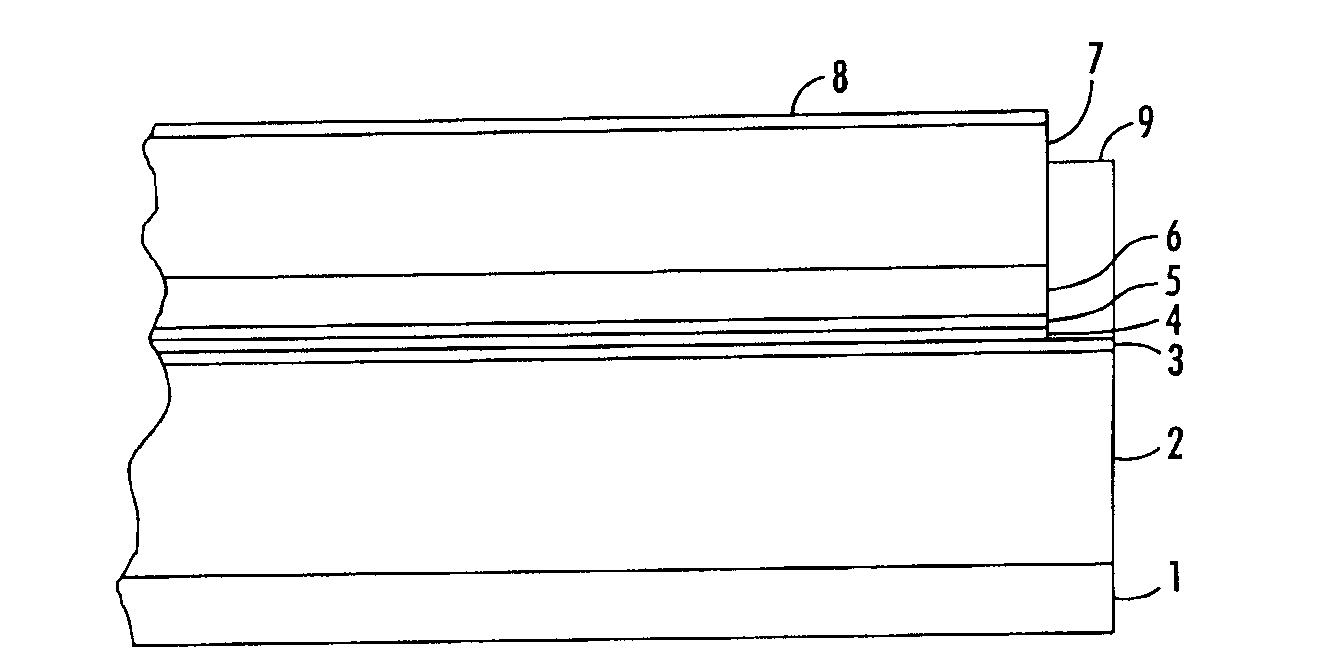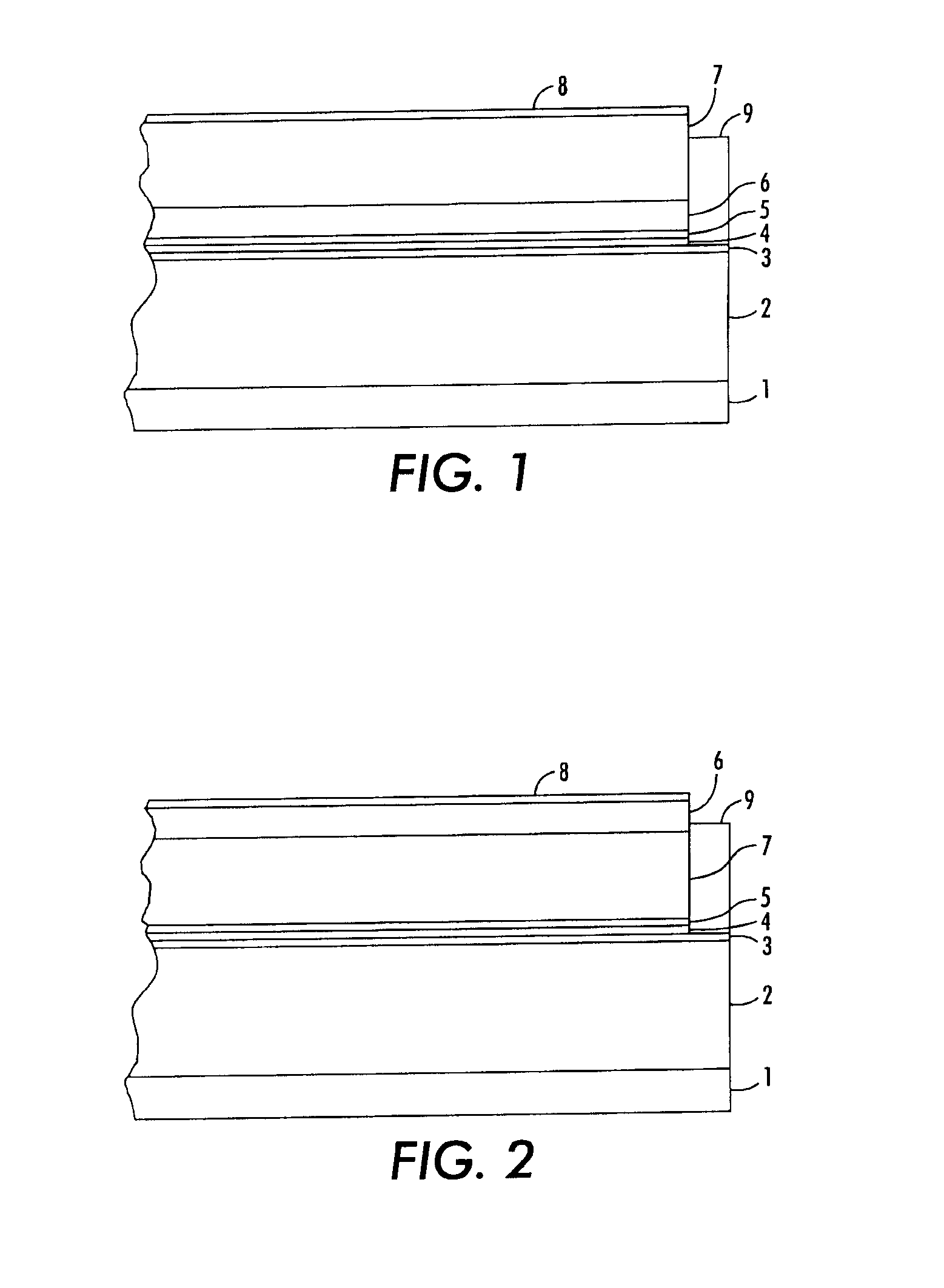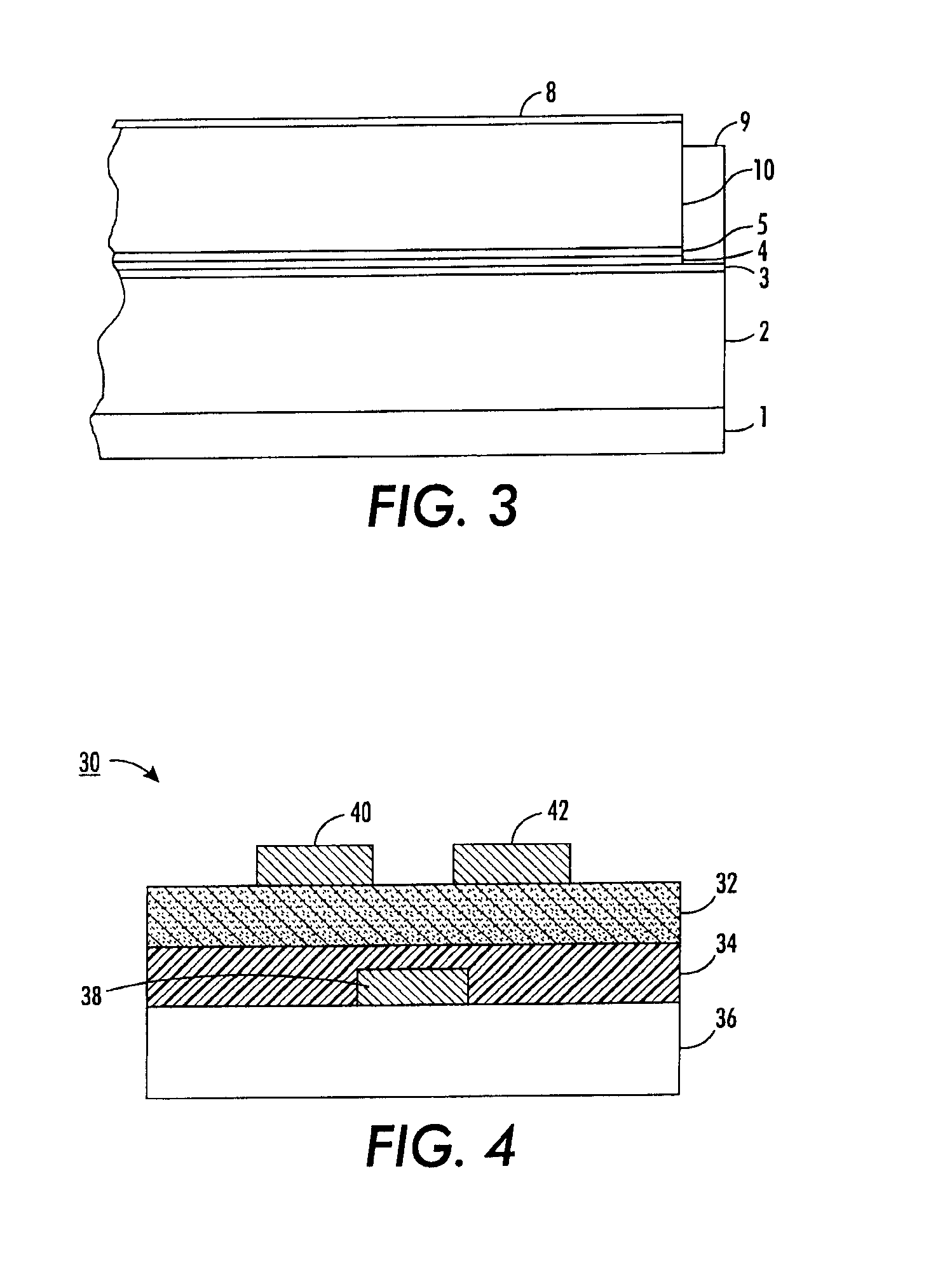Process for preparing structured organic films (SOFS) via a pre-sof
a technology of structured organic films and presoil, which is applied in the field of process for preparing structured organic films (sofs) via presoil, can solve the problems of poor control of the molecular-level structure of formed materials in the nature of polymer chemistry
- Summary
- Abstract
- Description
- Claims
- Application Information
AI Technical Summary
Benefits of technology
Problems solved by technology
Method used
Image
Examples
example 1
Type 2 SOF
[0342](Action A) Preparation of the liquid containing reaction mixture. The following were combined: the building block benzene-1,4-dimethanol [segment=p-xy1y1; Fg=hydroxyl (—OH); (0.47 g, 3.4 mmol)] and a second building block N4,N4,N4′,N4′-tetrakis(4-(methoxymethyl)phenyl)biphenyl-4,4′-diamine [segment=N4,N4,N4′,N4′-tetra-p-tolylbiphenyl-4,4′-diamine; Fg=methoxy ether (—OCH3); (1.12 g, 1.7 mmol)], and 17.9 g of 1-methoxy-2-propanol. The mixture was shaken and heated to 60° C. until a homogenous solution resulted. Upon cooling to room temperature, the solution was filtered through a 0.45 micron PTFE membrane. To the filtered solution was added an acid catalyst delivered as 0.31 g of a 10 wt % solution of p-toluenesulfonic acid in 1-methoxy-2-propanol to yield the liquid containing reaction mixture.
[0343](Action B) Deposition of reaction mixture as a wet film. The reaction mixture was applied to the reflective side of a metalized (TiZr) MYLAR™ substrate using a constant ve...
example 2
Control Experiment Wherein the Building Block benzene-1,4-dimethanol was Not Included
[0350](Action A) Preparation of the liquid containing reaction mixture. The following were combined: the building block N4,N4,N4′,N4′-tetrakis(4-(methoxymethyl)phenyl)biphenyl-4,4′-diamine [segment=N4,N4,N4′,N4′-tetra-p-tolylbiphenyl-4,4′-diamine; Fg=methoxy ether (—OCH3); (1.12 g, 1.7 mmol)], and 17.9 g of 1-methoxy-2-propanol. The mixture was shaken and heated to 60° C. until a homogenous solution resulted. Upon cooling to room temperature, the solution was filtered through a 0.45 micron PTFE membrane. To the filtered solution was added an acid catalyst delivered as 0.31 g of a 10 wt % solution of p-toluenesulfonic acid in 1-methoxy-2-propanol to yield the liquid containing reaction mixture.
[0351](Action B) Deposition of reaction mixture as a wet film. The reaction mixture was applied to the reflective side of a metalized (TiZr) MYLAR™ substrate using a constant velocity draw down coater outfitted...
example 3
Control Experiment Wherein the Building Block N4,N4,N4′,N4′-tetrakis(4-(methoxymethyl)phenyl)biphenyl-4,4′-diamine was Not Included
[0353](Action A) Preparation of the liquid containing reaction mixture. The following were combined: the building block benzene-1,4-dimethanol [segment=p-xy1y1; Fg=hydroxyl (—OH); (0.47 g, 3.4 mmol)] and 17.9 g of 1-methoxy-2-propanol. The mixture was shaken and heated to 60° C. until a homogenous solution resulted. Upon cooling to room temperature, the solution was filtered through a 0.45 micron PTFE membrane. To the filtered solution was added an acid catalyst delivered as 0.31 g of a 10 wt % solution of p-toluenesulfonic acid in 1-methoxy-2-propanol to yield the liquid containing reaction mixture.
[0354](Action B) Deposition of reaction mixture as a wet film. The reaction mixture was applied to the reflective side of a metalized (TiZr) MYLAR™ substrate using a constant velocity draw down coater outfitted with a bird bar having an 8 mil gap.
[0355](Actio...
PUM
| Property | Measurement | Unit |
|---|---|---|
| diameter | aaaaa | aaaaa |
| diameter | aaaaa | aaaaa |
| diameter | aaaaa | aaaaa |
Abstract
Description
Claims
Application Information
 Login to View More
Login to View More - R&D
- Intellectual Property
- Life Sciences
- Materials
- Tech Scout
- Unparalleled Data Quality
- Higher Quality Content
- 60% Fewer Hallucinations
Browse by: Latest US Patents, China's latest patents, Technical Efficacy Thesaurus, Application Domain, Technology Topic, Popular Technical Reports.
© 2025 PatSnap. All rights reserved.Legal|Privacy policy|Modern Slavery Act Transparency Statement|Sitemap|About US| Contact US: help@patsnap.com



